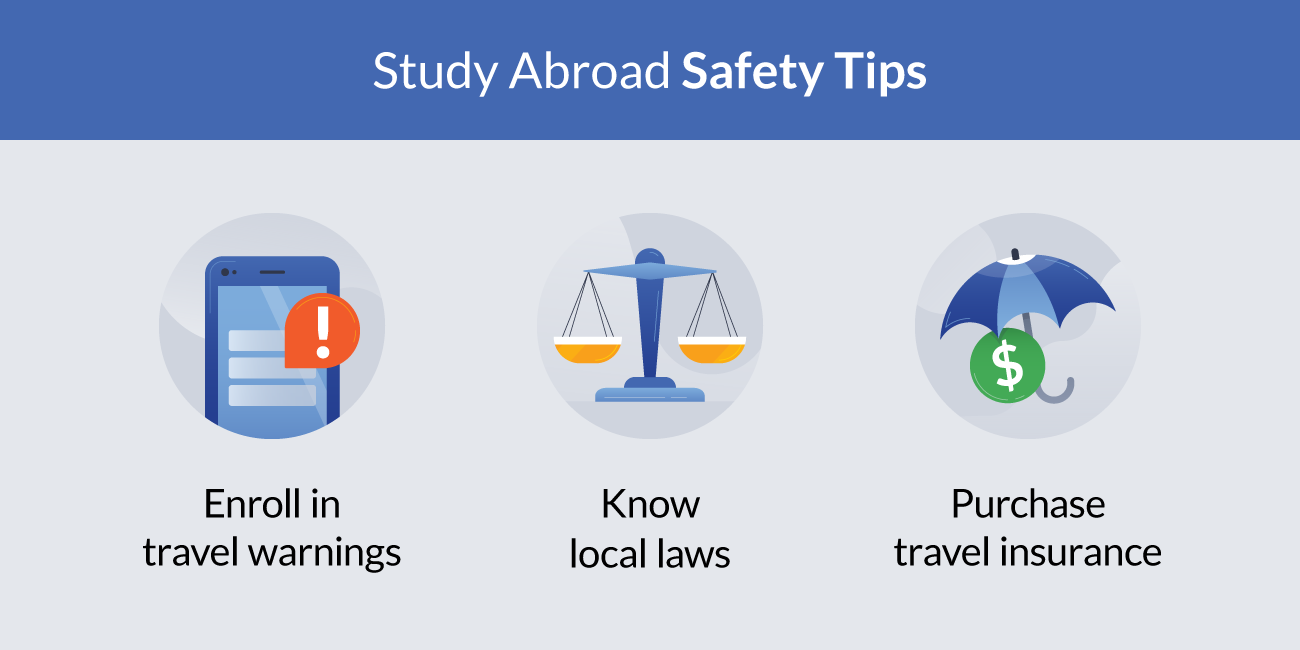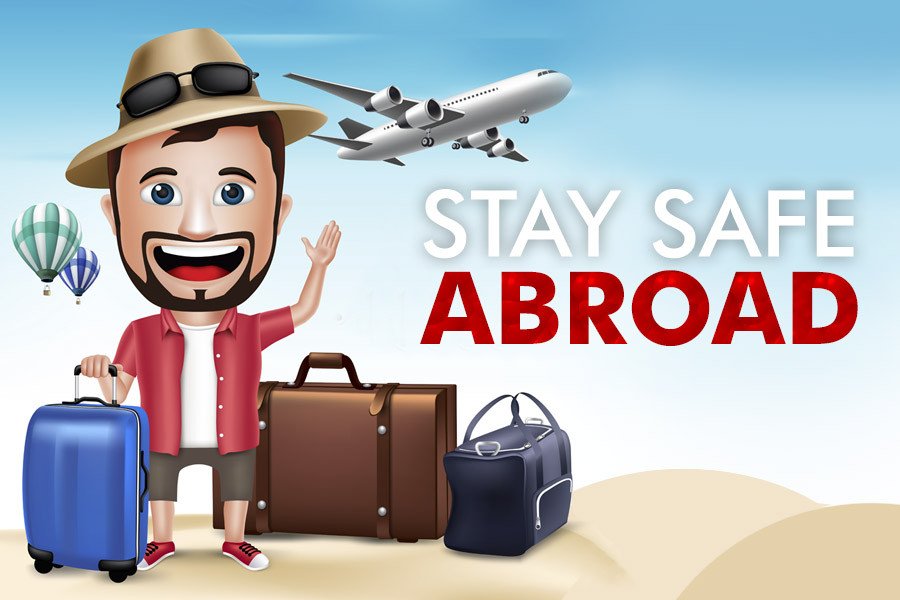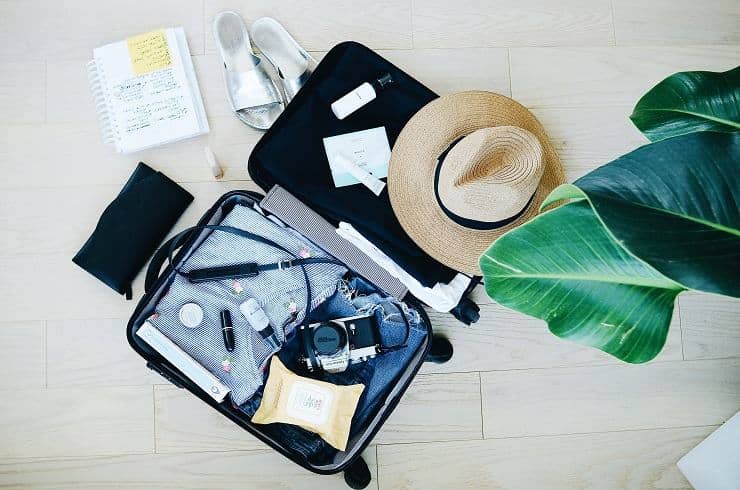Traveling abroad is an exciting experience, offering new adventures, cultures, and memories. However, when you’re far from home, safety should always be a priority. Whether you’re heading to a bustling city, exploring remote landscapes, or embarking on a solo trip, being prepared and aware of potential risks is essential for a smooth and enjoyable journey. In this guide, we’ll walk you through the most effective ways to stay safe while traveling abroad.
1. Research Your Destination Thoroughly
Before heading to any foreign country, do your homework. Research your destination, learn about local customs, cultures, and any travel advisories or health risks. Knowing what to expect will help you navigate your environment more confidently and avoid unfamiliar situations that could pose a risk to your safety.
Tips to Research:
-
Check travel advisories on government websites like the U.S. Department of State or your country’s equivalent.
-
Learn about common scams that target tourists in the area.
-
Know local laws and regulations, especially regarding customs, alcohol, and drugs.
-
Stay updated on health risks, such as vaccination requirements or outbreaks of diseases like malaria or Zika.
2. Secure Your Documents and Valuables
One of the most important steps in travel safety is protecting your personal documents and valuables. Losing your passport, money, or credit cards can be a nightmare, especially when you’re abroad.
How to Secure Your Belongings:
-
Carry a money belt or an anti-theft bag to keep important items close to you.
-
Make photocopies of important documents like your passport, visa, and travel insurance, and store them separately from the originals.
-
Use hotel safes when possible for storing valuables.
-
Keep track of your credit card and bank information and report any suspicious activity immediately.
3. Stay Connected with Loved Ones
Regular communication with friends or family members back home is a simple yet effective way to ensure your safety while traveling. Share your itinerary and contact details with a trusted friend or family member, and check in with them regularly.
How to Stay Connected:
-
Use messaging apps (like WhatsApp or Signal) for regular updates.
-
Share your plans and location with someone who can assist if anything goes wrong.
-
Set up an emergency contact system to ensure someone knows how to reach you in case of an emergency.
4. Be Aware of Your Surroundings
When traveling, it’s easy to get distracted by new experiences, stunning views, or unfamiliar surroundings. However, staying aware of your environment can prevent you from becoming a target for theft or scams.
Tips for Staying Alert:
-
Keep your head up and avoid walking around looking at your phone in public places.
-
Stay in well-lit, busy areas after dark and avoid walking alone in unfamiliar neighborhoods.
-
Watch out for pickpockets, especially in crowded areas or on public transport.
-
Trust your instincts—if something doesn’t feel right, remove yourself from the situation.
5. Have Emergency Contacts Ready
Before you leave, make sure you have a list of emergency contacts in the country you’re visiting. This includes local authorities, your country’s embassy, and medical services. Having these numbers readily available can save precious time in case of an emergency.

Essential Emergency Contacts:
-
Local emergency numbers (e.g., 112 in the EU, 911 in the USA)
-
The nearest embassy or consulate for your country
-
Local hospitals or medical centers
-
Trusted local friends or contacts
6. Stay Safe on Public Transportation
While public transportation is an affordable and convenient way to get around, it’s important to remain vigilant. Buses, trains, and subways can be hot spots for pickpocketing and other crimes.
Safety Tips for Public Transportation:
-
Keep your bag in front of you and zippered at all times.
-
Avoid traveling during off-peak hours, when there are fewer people around and risks increase.
-
Research your routes and schedules to avoid getting lost or stranded in unsafe areas.
-
Use reputable ridesharing services (like Uber, Lyft, or Bolt) when possible instead of hailing random taxis.
7. Protect Your Health and Well-Being
Your health and well-being are crucial aspects of a safe trip. Taking steps to stay healthy while abroad can prevent illness and ensure you’re able to enjoy your travels.
Health Tips:
-
Stay hydrated and avoid drinking tap water in places where it’s unsafe.
-
Use sunscreen and wear protective clothing when outdoors.
-
Keep a basic first aid kit with you, including medications you may need.
-
Learn about local food safety and avoid consuming food or drinks that may upset your stomach.
-
Purchase travel insurance that covers health care and emergency evacuations.
8. Avoid Risky Areas and Activities
Certain areas and activities may carry higher risks, such as political unrest, natural disasters, or dangerous wildlife encounters. Stay informed about the safety situation in your destination and adjust your plans accordingly.
Tips for Avoiding Risky Areas:
-
Avoid areas with recent reports of violence or political unrest.
-
Check local news for any natural disasters or travel advisories.
-
Be cautious with adventure activities, such as mountain climbing or scuba diving, and ensure you’re properly trained and equipped.
9. Use Trusted Accommodations
Choosing the right place to stay is essential for ensuring your safety abroad. While hostels and budget hotels may seem appealing, they may not always be the safest option.
Accommodation Safety Tips:
-
Book accommodations in well-known, reputable areas.
-
Use reliable booking platforms with reviews from other travelers (e.g., Booking.com, Airbnb).
-
Ensure your hotel has good security measures, like 24-hour reception and room safes.
Conclusion
Traveling abroad is an exciting way to experience new cultures and create lasting memories, but staying safe is paramount. By researching your destination, securing your valuables, staying connected with loved ones, and being aware of your surroundings, you can minimize risks and focus on enjoying your trip. Remember to trust your instincts, keep emergency contacts handy, and prioritize your health and well-being. With these precautions in place, you’ll be ready to explore the world with peace of mind and confidence. Safe travels!










